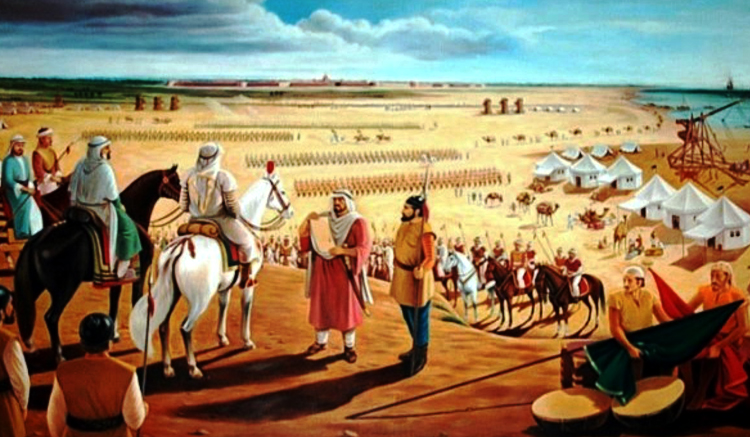Political History Arrival, Foundation and Consolidation of Muslim Rule in India
The end of Muslim rule in India was as spasmodic as its beginning. It took five hundred years for its establishment (712-1206) and one hundred and fifty years for its decline and fall (1707-1857). The benchmarks of its establishment are C.E. 712 when Muhammad bin Qasim invaded Sind, 1000 when Mahmud of Ghazni embarked upon a series of expeditions against Hindustan, 1192-1206 when Prithviraj Chauhan lost to Muhammad Ghauri and Qutbuddin Aibak set up the Turkey Sultanate at Delhi, and 1296 when Alauddin Khalji pushed into the Deccan. The stages of its downfall are 1707 when Aurangzeb died, 1739 when a trembling Mughal Emperor stood as a suppliant before the Persian Invader Nadir Shah, 1803 when Delhi was captured by the British, and 1858 when the last Mughal ruler was sent to Rangoon as a prisoner of the Raj.
For five centuries-thirteenth to seventeenth-however, most parts of India were under Muslim rule, though with varying degrees of effectiveness in different regions of the country. But at no single point of time was the whole country ruled exclusively by the Muslims. On the other hand, the five hundred year long Muslim rule did not fail to influence Indian political and cultural life in all its facets. Muslim rule apart, Muslim contact with India can be counted from the seventh century itself. Naturally, the interaction of Muslim culture with the Hindu way of life, backed by the superimposition of Muslim rule in India, gave rise to a sort of a common Indian culture. But only a sort of, there is a superficial veneer about it. On the face of it the influence of Islam on Indian culture is to be seen in all spheres of life, in architecture, painting, music, and literature; in social institutions like marriage ceremonies, in eating habits, in gourmet and cuisine, sartorial fashions and so on. In actual fact, Hindus and Muslims lead their own lives, mostly in isolation from one another, except for personal friendships. Even living together for a thousand years has not welded Hindus and Muslims into one people. Why is it so?
